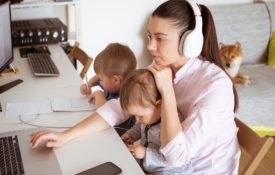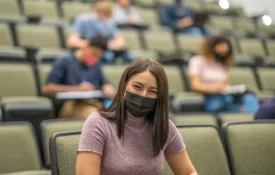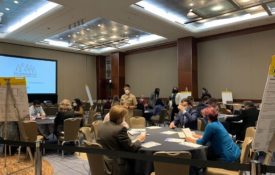-

How Work Is Evolving Under the Pressure of COVID-19
An interdisciplinary program of speakers shared research on the COVID-19 pandemic from a variety of perspectives, including big-data analyses, research methodologies, individual differences, and group inequities related to jobs, well-being, and social status.
-

How Work Is Evolving Under the Pressure of COVID-19
An interdisciplinary program of speakers shared research on the COVID-19 pandemic from a variety of perspectives, including big-data analyses, research methodologies, individual differences, and group inequities related to jobs, well-being, and social status.
-
Science Skeptics Often Suffer From Overconfidence
The study surveyed thousands of Americans online, quizzing them on scientific facts and soliciting their opinions on eight contested topics, including the COVID-19 vaccine. The researchers found that respondents who answered more factual questions correctly
-

Applying Psychological Science to Educational Policy and Practice: COVID-19 and the College Admissions Process
In a July 21 webinar produced by the APS Global Collaboration on COVID-19, four speakers from multiple areas of research and practice discussed how the pandemic has magnified interest in research on test-optional policies for college admissions.
-
How Do Students Decide When to Submit SAT Scores to Colleges?
The COVID-19 pandemic may have fundamentally altered many aspects of education. One less appreciated area of focus is on how the college admissions process has been affected. Recent books by Jeffrey Selingo on who gets in and why, Ron
-

Funding and Policy: Science and Policy Intersect in Public Health Program at APS 2022
Headlining science policy programs at APS 2022 was a special panel organized by U.S. government scientists and behavioral research experts on public health and vaccine policy.

